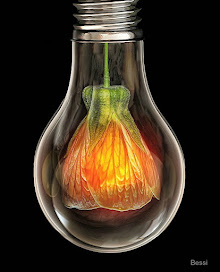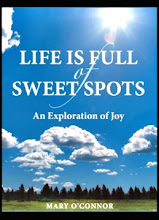The best writers know that nothing delineates place, mood, character and culture like smell. Some writers dabble in olfactory references, but for beloved Israeli novelist Meir Shalev smell is oxygen. It mingles with printer's ink and infuses the pages of Four Meals and Blue Mountain with flourishes of magical realism. The first paragraph of Four Meals is a paean to the sense of smell as a literary device:
"On warm days, a soft smell of milk rises from the walls of my house. The walls are plastered and whitewashed, tiles cover the ground, but from the pores of the walls and the cracks of the floor the smell rises to me, persists, steals in like the sweat of an ancient love." --Shalev, Meir. Four Meals. Translated by Barbara Harshav. (Great Britain: Cannongate, 2002), 1.Shalev's description of blossoming trees in Blue Mountain is an iconic example of the fluidity with which he approaches the world of the senses and could easily be transformed into a rich chypre in the mind of a perfumer:
"The white blossoms of the almonds were the first to appear, the sweetness of their petals wafting through the air as if challenging the rain and the mud. Next the peach bloomed in a fierce pink, the tall, slender stamens of its flower lighter than its rich, dark buds. Beside it glowed the delicate apricot, whose scent was like a woman's perfume." --Shalev, Meir. Blue Mountain Translated by Hillel Halkin. (Great Britain: Cannongate, 2002), 108.When asked if he would like to take the Glass Petal Smoke "Sensory Questionnaire" Meir Shalev graciously accepted. If you've read Four Meals and Blue Mountain you might have a few "ah-ha" moments when you read the award-winning novelist's responses.
1. What does your sense of smell mean to you?
Immediate like or dislike.
2. What are some of your strongest scent memories?
My children when they were babies, dead bodies and other smells of war, my mother's habit to rub her palms with the peel and juice of lemons.
3. What are some of your favorite smells (things in nature, cooking and/or your environment)?
Flowers of "fitna" (Plumeria rubra) tree, bread baking, simple soap, wet soil after the first rain, and old books.
4. Do you have any favorite smells that are considered strange?
Horse manure and gasoline.
5. Describe one or more of your favorite cooking smells.
The smell of chicken soup as you add the parsley and the dill. Frying with sesame oil.
6. What smells do you most dislike?
Strong aftershaves and vulgar perfumes.
7. What smells did you most dislike, but learned to love?
I have not yet changed my mind about smells I do not like.
8. What mundane smells inspire you?
The smell of fresh bread. The market in Jerusalem.
9. What scent never fails to take you back in time and why?
The smell of eucalyptus trees reminds me of the army camp where I was in the first period of my [military] service and did not like at all. The smell of leather reminds me of a poor Holocaust survivor who was the shoemaker in my childhood neighborhood in Jerusalem.
10. What scents do you associate with memories of loved ones?
Scents of different foods, perfumes, cows, hospital and tobacco.
11. What fragrance(s) remind you of growing up?
Pipe smoking. When I was 15-years-old my father taught me how to fill his pipe and light it for him. He used to smoke his pipe once a week. I do not smoke, but I like the ceremony and I still like this smell a lot.
12. What fragrance(s) remind of you of places you visited on vacation?
Greek ouzo, Thai dishes, New Orleans okra, Chinese soap, rotting meat in Mongolia, and burning cow dung in Kenya.
13. Describe a piece of sensory literature that is very magical for you.
My late father, Yitzhak Shalev, was a poet and wrote a novel called The Gabriel Tirosh Affair. The first lines of the book describe the narrator, now in his fifties, walking in a busy street in Jerusalem and suddenly sensing the aftershave of his high school teacher whom he admired and never saw after he disappeared so many years ago. My father had a bloodhound nose and was relating often to smells in his writing and in conversation.
Notes:
Meir Shalev's latest book is a work of nonfiction titled My Russian Grandmother and Her American Vacuum Cleaner: A Family Memoir. The book's central character is his Grandma Tonya, a feisty Russian woman who immigrated to Palestine in 1926. From the book we learn that Shalev's relationship with his grandmother, and related antics that ensued in her wake, played a role in shaping his writer's persona. (Fans of Shalev's work also get a glimpse into stories passed down by family members that shaped some of the characters in Four Meals and Blue Mountain.) Glass Petal Smoke recommends all three books as a trilogy for first-time Shalev readers in America and hopes that more of the award-winning novelist's work will be translated from Hebrew into English.
Photograph of a basket of baguettes at Teller's Bakery in Mahane Yehuda, Jerusalem by Avital Pinnick. Used with permission. Rights revert back to Avital Pinnick. Be sure to check out Ms. Pinnick's blog This and That for more beautiful images and superb content.
Painting of The Shoemaker by Benzion Mikhtom, a young Jewish artist killed in Poland during World War II. Mikhtom was a member of a creative collective called Yung Vilne. Many of his paintings were destroyed or stolen due to the war, but The Shoemaker survived.
Photograph of cows grazing by Maciej Lewandowski licensed under Creative Commons.

















